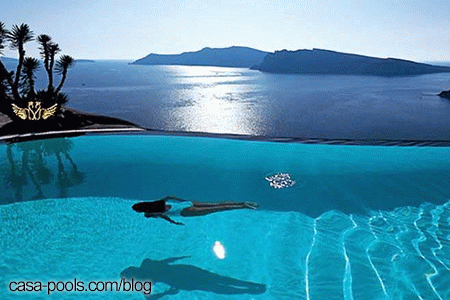|
|
|
Published On: February 20, 2014
By: George Taylor, Wisconsin
|
GENERAL CATEGORY
|
POOL CHEMISTRY TO EXTEND YOUR SWIMMING POOLS LIFE
|

|
|
pool chemistry to extend your swimming pools life
|
Birds are chirping, the grass is growing, and the temperature is slowly rising. Spring is in bloom and you want to spend your free time outside. Landscaping, opening your swimming pool (swimming pools), and basic home improvement should all be on your list. Opening your pool can be quick and easy if you follow your checklist. However, getting the chemicals balanced right (pool chemistry) has always been somewhat tricky. That was until now.
Maintaining proper pool chemistry can help you save time and money while enjoying your backyard paradise. Pool chemistry involves more than just the basic adding of chemicals to keep the pool clean. Over time, some swimming pool (swimming pools) finishes have the potential to discolor- but before you make the decision to replace a discolored pool finish, look at some other solutions.
Inspect the Site
Similar to the opening your pool procedures, the initial steps of maintaining proper pool chemistry are crucial. Before even diving into fix the water problem, do a site inspection. One of the most overlooked areas regarding opening the swimming pool (swimming pools) is the area around your swimming pool (swimming pools). Remember to clean debris from the pool deck, patio and surrounding areas. Make sure that you skim and vacuum any debris from the swimming pool (swimming pools) or water surface. Remember to equip yourself with the right tools and free your mind of any preconceived notions about your swimming pool (swimming pools).
Have a digital camera for documentation of any cracks or discoloration in the pool finish. Sanding pads are necessary to check the grit of the pool finish. The pads are used to establish the smoothness of the pool finish. If the surface is rough, it needs to be determined if this is from etching or precipitation. The pool finish should be smooth to the touch. Dental picks are a tool used by many pool professionals to test the grout between pool tiles. The dental picks are used similarly to the sanding pads for the pool finish. Use the same techniques to verify the condition of the grout. Soap is also essential to break the surface ripples of the pool. Squirt just a little bit of dish soap into to the pool. The absence of ripples allows you to look into the bottom of the swimming pool (swimming pools). Visually inspect the pool interior surface to confirm its condition.
If you see a major flaw or crack in your pool finish, contact a pool professional. They will be able to determine the severity of the situation and provide you will a suitable solution. This is a perfect time to check for any algae or metal stains in the swimming pool (swimming pools). After doing a superlative site inspection, next test the water for proper chemistry levels.
Test the water
Proper pool water chemical levels have a great deal to with the source water used. It is best to do a source water test before even thinking about testing the pool. Make sure that you have an accurate volume measurement for the pool in terms of gallons. Many pool water related problems stem from bad information about swimming pool (swimming pools) size. You dont want to add too much of a chemical because this will lead to etching and other types of surface problems. Test for proper pH levels, total alkalinity, calcium hardness and salt levels. This test can be done at your local pool retailer. To get your water treated at a retail store, fill a water bottle at least 18 inches below the surface of the water. This will give you a better sample of the pools water.
Total Dissolved Solids (TDS) and cyanuric acid (CYA) are also large factors in pool chemistry. The Langelier Saturation Index (LSI) is a means of evaluating water quality data to determine if your pool or hot tub water has a tendency to form a chemical scale. In order to use this index, the following measurements are needed: pH, conductivity, total dissolved solids, alkalinity, and total hardness. pH has an acceptable range between 7.2 and 7.6. Total Alkalinity should be between 120-150 parts per million. The Calcium Hardness test accepting range varies for the type of pool you have. A gunite, or concrete, pool should register between 200-250 parts per million of the scale. Whereas, vinyl pools should record around 175-225 parts per million. Test the water and check for levels of each factor to be the in the acceptable range based on your test kit. This test will analyze, and explain, any water problems that may arise. If a certain level is not acceptable, make the proper chemical adjustment.
This is the reason knowing exactly how many gallons of water your pool holds is important. Chemical imbalances in the swimming pool (swimming pools) can eat away at the pool finish and turn it very rough to the touch. Pool water should be tested 2-3 per week to ensure optimal swimming conditions. Proper pool chemistry not only keeps the pool clean and sanitized, but it also prolongs the life of the pool finish.
Accurate pool maintenance can do more than just prolong your fun in the sun. It also can extend the life of your pools external parts and interior pool finish. Discoloration in a pool doesnt always mean that there is a flaw in the material used. Make sure to research before jumping to a costly conclusion. Visually inspect the pool surface for any crack or imperfection. Test the source water to check for any chemical imbalances, and test the pool to maintain acceptable chemical levels. Follows these simple rules and you will continue to have a blast in your swimming pool (swimming pools) for years to come.
|
|
|
|
|
